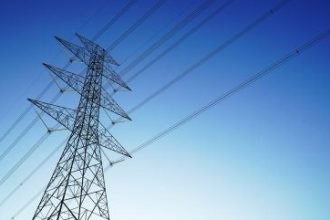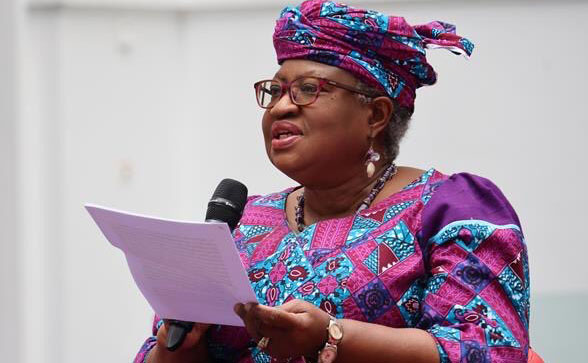The Director General, World Trade Organisation, Dr Ngozi Okonjo-Iweala, has said Nigeria and three other African countries are poised to reap significant economic benefits from Artificial Intelligence, with potential gains exceeding $136 billion.
This is even as she stated that Artificial Intelligence (AI) has the potential to boost global economic activity by up to $15.7 trillion by 2030, with the global south, including Nigeria, standing to gain substantially.
The WTO DG spoke in Abuja on Tuesday while delivering a keynote address at the 10th convocation ceremony of the African University of Science and Technology (AUST).
While listing the three other countries including Kenya, Ghana, and South Africa, she called on African countries to harness the benefits of AI by investing in basic infrastructure, regulatory frameworks, digital literacy, and upskilling young people.
“These are four countries who are making strides in technology, and I’m glad Nigeria is fully one of them,” she said.
She continued: “If Nigeria could get it right, her economy could reap major rewards. A recent report by Access Partnership, a public policy consultancy focused on technology, estimates that AI could generate $136 billion in productivity gains, cost savings, time savings, and increased revenues for four countries.
“But the gains and the savings amount to 13 per cent of the 2022 GDP of these four countries, with Nigeria in line to receive 43 per cent of the estimated gains.”
The former Finance Minister referenced a PricewaterhouseCoopers (PwC) report, which predicts that Artificial Intelligence (AI) will boost the global economy by 14 per cent by 2030, adding a staggering $15.7 trillion to global GDP.
The keynote speaker said: “The global south, including Nigeria, has much to gain. But countries across the developing world will need to be proactive to seize this potential, and we cannot afford to be left behind.
“Universities like AUST have a big role to play in thinking about what AI means for the development of Nigeria and the continent as a whole, and how we can capitalize on the opportunities whilst managing the risks.”
She said AI can address long-standing development challenges in Nigeria, such as education, healthcare, agriculture, finance, energy, infrastructure among others.
Okonjo-Iweala lamented that many African countries face significant barriers to adopting Artificial Intelligence (AI) due to limited access to reliable internet and affordable digital infrastructure.
She noted that this digital divide risks excluding rural and underserved communities from the benefits of AI-driven advancements.
“Internet penetration in Nigeria, for example, stood at 43 percent in March 2024, down from 48 percent the previous year.
“So we must seize the emerging opportunities that internet penetration has to improve.Underpinning all that, of course, is access to reliable electricity power supply.
“Power outages and constant interruptions might prove a more challenging constraint in Nigeria and other African countries to internet access and AI adoption than anything else. In other words, we could lay out the smartest approaches to adoption of AI, like the federal government and AUST is trying to do, but find our efforts undermine their lack of access to the very basics, electricity infrastructure.
“And here I would propose that we take a more decentralized approach to electricity provision in the country in light of the improved affordability of renewable energy.”







